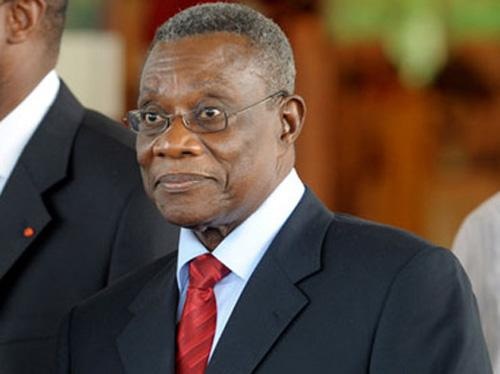Concerns raised about cause of Mills’s death
 The clouds gave way to rains today, but exactly a year after President John Evans Atta Mills’s death, the dust is yet to settle on the cause of death, as his family members still demand answers.
The clouds gave way to rains today, but exactly a year after President John Evans Atta Mills’s death, the dust is yet to settle on the cause of death, as his family members still demand answers.
Advertisement
Speculation built up last year over where and how he had died and what had killed him, but after a whole year the answers to these questions are still not forthcoming.
The one-year anniversary appears to have tickled the nerves of family members who are still demanding answers.
Speaking on Joy News, Abusuapanyin Nana Supi Kwamena, the Head of the late President’s family, said the family wanted to know what killed their kinsman.
“Even when a little child dies, we are told what exactly killed that child. We know President Mills died before former Vice-President Aliu Mahama died but we know what killed Alhaji Mahama,” he said.
However, in another contradictory twist, the Abusuapanyin said the family had left the mystery surrounding the late President’s death to God.
“For us his relatives, we leave it to God. We don’t know the cause of the late President’s death. No one has told us what exactly caused his death,” he said.
President Mills, who died on July 24, last year, three days after his 68th birthday, became the first Ghanaian President to have died in office.
The debate over his death traversed the media landscape last year, with some government critics calling for a coroner’s inquest to ascertain the cause of death.
While the government had dismissed such calls last year, this year the response is that an autopsy had been done and the result was in possession of the nuclear family and so persons interested in the details could contact the late President’s nuclear family for those details.
But Prof Agyeman Badu Akosa, a pathologist and former Director-General of the Ghana Health Service, said the call for an insight into the late President’s death was unnecessary.
“The whole hue and cry about the actual cause of death is totally unnecessary. The man has died from natural causes. Full stop!” he declared.
He said a coroner’s autopsy was necessary to establish the cause of death when there was no proper record of the disease that had affected the person before he or she went to hospital and died shortly afterwards.
“A coroner’s autopsy is to answer one question — was the cause of death natural? Full stop! I think that has been ascertained,” he said.
Prof Akosa said what should engage the country’s attention were events before President Mills’s death.
“What happened at the Castle? Who was there? What did the person do? Who called for an ambulance? How long did the ambulance take to get there? Where did the ambulance take him? Was the ambulance sufficiently equipped to support life? Was it an ambulance that could speak to the receiving hospital, in this case the 37 Military Hospital? Who at 37 received the call? What was the state of preparedness of 37? Who was there to receive the patient? What happened immediately after he was received?” he asked, adding, “These are the processes that have got to be investigated.”
Citing the case of the US, he said the White House had a medical team that was permanently on duty and ran a shift.
“They know at any given time what could happen and potentially they are prepared for it. We don’t have that. Those are the things we need to do,” he stated.
On the way forward, he said the health of a sitting President was very important.
“The lessons moving forward are that all presidential aspirants need to make public a certificate of their health, so that we know as a country what we are letting ourselves into,” he added.
By Seth J. Bokpe/Daily Graphic/Ghana



